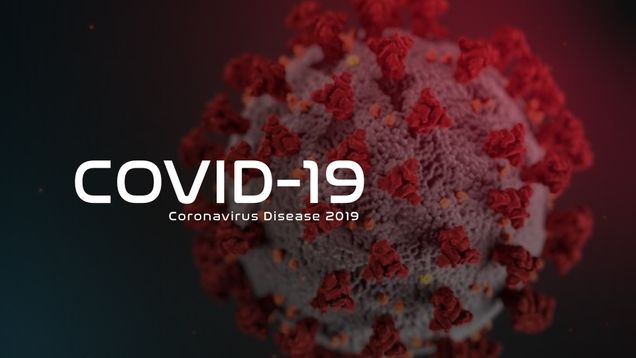Newsletter
Volume 7, Issue 2
April – June 2020
Check out the current issue of URBAN ARCH News, the quarterly newsletter bringing you news on the latest URBAN ARCH and related research.
URBAN ARCH Response to COVID-19
In this edition of the URBAN ARCH Newsletter, we highlight how the URBAN ARCH studies adapted to the restrictions put in place in response to the COVID-19 pandemic.
In this issue, we interview Dmitry Lioznov, MD, PhD, co-investigator with the Russia ARCH Cohort.
Click on the buttons to see what the URBAN ARCH Cohorts and Cores have been working on.
In this edition of Tips From the Field we describe a tri-continental approach to measuring alcohol use.
- Foley JD, Sheinfil A, Woolf-King SE, Fatch R, Emenyonu N, Muyindike WR, Kekibiina A, Ngabirano C, Samet JH, Cheng DM, Hahn JA. Assessing the interaction between depressive symptoms and alcohol use prior to antiretroviral therapy on viral suppression among people living with HIV in Rural Uganda [published online ahead of print, 2020 Jun 1]. AIDS Care. 2020;1‐7.
- Freiberg M, Cheng D, Gnatienko N, Blokhina E, Coleman S, Doyle M, Yaroslavtseva T, Bridden C, So-Armah K, Tracy R, Bryant K, Lioznov D, Krupitsky E, Samet J. Effect of zinc supplementation vs placebo on mortality risk and HIV disease progression among HIV-positive adults with heavy alcohol use. JAMA Netw Open. 2020;3(5):e204330.
- Palfai TP, Saitz R, Kratzer MPL, Taylor JL, Otis JD, Bernstein JA. An integrated videoconferencing intervention for chronic pain and heavy drinking among patients in HIV-care: a proof-of-concept study [published online ahead of print, 2020 Jun 11]. AIDS Care. 2020;1-8.
- Puryear SB, Fatch R, Beesiga B, Kekibiina A, Lodi S, Marson K, Emenyonu NI, Muyindike WR, Kwarisiima D, Hahn JA, Chamie G. Higher levels of alcohol use are associated with latent tuberculosis infection in adults living with HIV. [published online ahead of print, 2020 May 6]. Clin Inf Dis. 2020.
- Raja A, Heeren TC, Walley AY, Winter MR, Mesic A, Saitz R. Food insecurity and substance use in people with HIV infection and substance use disorder. Substance Abuse. 2020;1-9.
- Sereda J, Kiriazova T, Makarenko O, Carroll J, Rybak N, Chybisov A, Bendiks S, Idrisov B, Dutta A, Gillani F, Samet J, Flanigan T, Lunze K. Stigma and quality of co-located care for HIV-positive people in addiction treatment in Ukraine: a cross-sectional study. JIAS. 2020;23(5):e25492.
Is Zinc Supplementation Associated with Decreased Mortality in People Living with HIV and Heavy Alcohol Use?
Taken as a supplement, zinc has been shown to reduce alcohol-related inflammation and microbial translocation (the passage of gut microbes through the epithelial barrier of the gastrointestinal tract), both of which are commonly associated with mortality, particularly among people living with HIV (PLWH). URBAN ARCH researchers recently tested whether zinc supplementation would reduce the risk of mortality, risk of cardiovascular disease, levels of inflammation and microbial translocation, and slow HIV disease progression in PLWH with heavy alcohol use. Participants (N=254) were adults with HIV who were antiretroviral therapy-naïve at baseline, and had heavy alcohol use* in the last 30 days, living in St Petersburg, Russia. They were randomized to receive zinc (15 mg daily for men; 12 mg for women; n=126), or placebo.
At 18 months, compared with placebo…
- Zinc supplementation was not significantly associated with changes in the Veterans Aging Cohort Study (VACS) Index score, a measure of mortality risk (mean change 0.49 versus 5.5 in placebo group [P=0.06]).
- Zinc also did not have a significant effect on CD4 cell counts, cardiovascular disease risk, and levels of inflammation or microbial translocation.
- Adherence to zinc supplementation was 51% over the course of the study. Participants who were adherent had a significant decrease in their VACS Index scores at 18 months, compared with placebo (mean change 0.22 and 7.72, respectively).
* Defined as >4 standard drinks per day (or >14 standard drinks per week) for men and >3 drinks per day (or >7 drinks per week) for women.
Comments: Although the difference in change in VACS Index scores between the two groups was not statistically significant, there was a clinically meaningful difference: the mean change in the zinc group corresponded to a 2% increase in mortality risk over 18 months, compared with a 20% increase in the placebo group. Adherence may have been a factor, combined with relatively small sample sizes. These results warrant a larger study of this accessible and inexpensive supplement on health outcomes in this population.
Reference: Freiberg MS, Cheng DM, Gnatienko N, et al. Effect of zinc supplementation vs placebo on mortality risk and HIV disease progression among HIV-positive adults with heavy alcohol use: a randomized clinical trial. JAMA Netw Open. 2020;3(5):e204330.
Selected NIH Notices and Funding Opportunities
- Alcohol-HIV/AIDS Program Project Comorbidities, Coinfections, and Complications Research: Intervention and Cross-Cutting Foundational Research (P01 Clinical Trial Optional)
- Guidance for NIH-funded Clinical Trials and Human Subjects Studies Affected by COVID-19
- Availability of Administrative Supplements and Competitive Revision Supplements on Coronavirus Disease 2019 (COVID-19) within the Mission of NIAAA (NOT-AA-20-011)
Click here for more funding announcements related to HIV and alcohol research.
- International AIDS Society (IAS) Conference: To be held virtually July 6-10, 2020.
Click here for more events and conferences.

